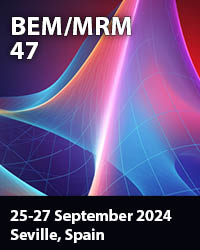Height Function Interface Reconstruction Algorithm For The Simulation Of Boiling Flows
Price
Free (open access)
Transaction
Volume
70
Pages
12
Page Range
69 - 80
Published
2011
Size
248 kb
Paper DOI
10.2495/MPF110061
Copyright
WIT Press
Author(s)
M. Magnini & B. Pulvirenti
Abstract
In this paper we present our results on numerical study of vapor bubbles growing in quiescent superheated liquid, as effect of liquid evaporation at the interface. Height Function interface reconstruction algorithm is coupled with an evaporation model based on continuum field representation of source terms. The flow solver is a finitevolume CFD code. Interface is tracked within a Volume-Of-Fluid framework. Continuum-Surface-Force method accounts for surface tension effects. Vapor bubble heat-transfer-controlled growth is simulated for three different working fluids: water, HFE-7100 and R134a. Accuracy of interface reconstruction algorithm is of maximum importance. Unbalance between pressure gradients and surface tension forces at interface leads to the growth of an unphysical velocity field which switches original only diffusive heat transfer mechanism to combined diffusive-convective one. Height Function algorithm reduces the magnitude of this unreal velocity field. Standard test cases are considered to assess the performances of implemented version, through comparison with the widely used Youngs algorithm. Keywords: volume of fluid, height function, evaporation, surface tension, bubbles. 1 Introduction Modern numerical implementation of surface tension driven flows, with phase change, begins with the work of Juric and Tryggvason [1]. Earlier methods used a Lagrangian approach with a moving mesh following the interface. The limit of these methods was that they could not manage large interface deformation. Juric and Tryggvason developed a Front Tracking algorithm where Lagrangian evolution of interface is tracked on a fixed grid. Welch and Wilson [2] and Son
Keywords
volume of fluid, height function, evaporation, surface tension, bubbles





